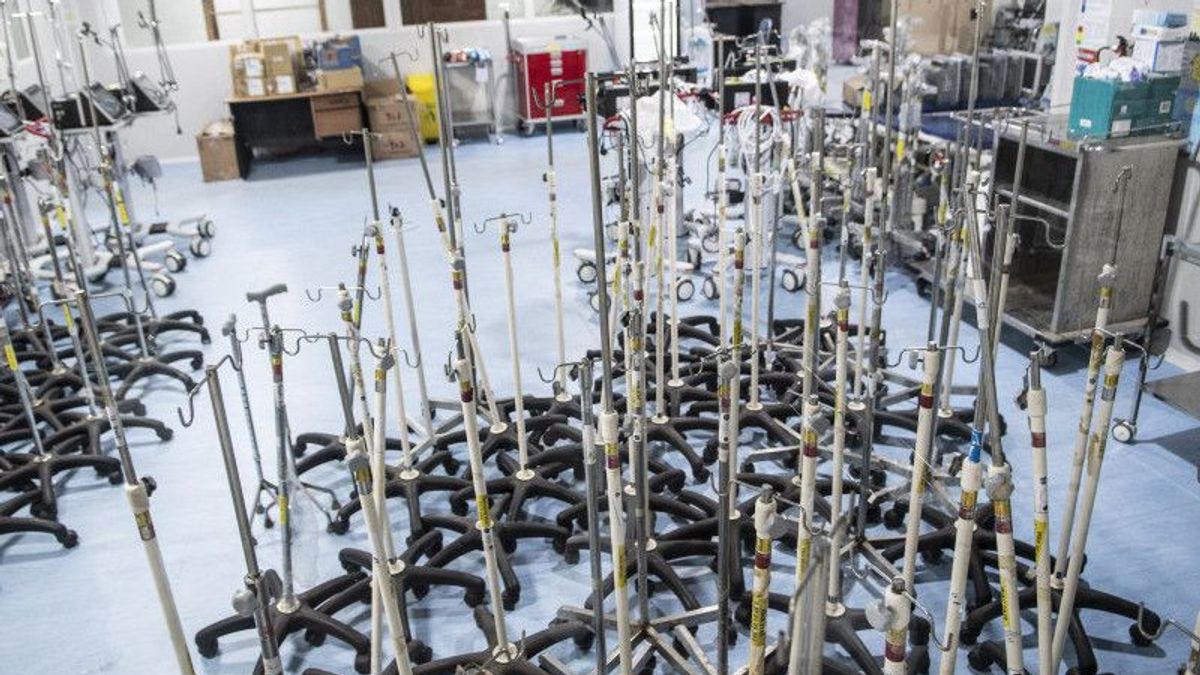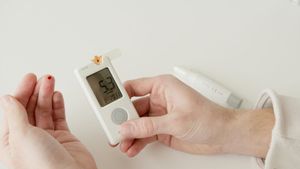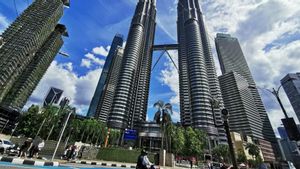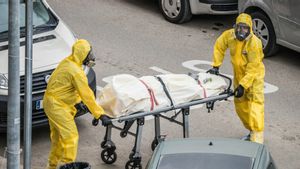JAKARTA - Epidemiologist from the Faculty of Public Health, University of Indonesia, Iwan Ariawan, said that one of the indicators in handling the pandemic, namely the virus's reproductive figure (Rt) in Indonesia, was monitored to be stable and under control.
"For the calculation of effective reproduction figures whose calculations are given to KPCPEN, the Coordinating Ministry for Maritime Affairs, the Ministry of Health and the Presidential Staff Office (KSP), the effective reproduction rate actually calculates on average how many people are transmitted from one confirmed case of COVID-19," said Iwan in Jakarta, Antara, Friday, March 31.
Iwan said that since early 2023, the reproductive number of cases in Indonesia has been observed to have touched 0.97 or below 1. This means that one person infected with COVID-19 can transmit the virus to less than one person.
The reproduction rate of the virus also continues to show a downward trend and does not increase. This shows that the COVID-19 pandemic has been successfully controlled.
In addition to the virus reproduction rate, the results of a serological survey conducted by his party showed that in July 2022 the large anti-body that was formed in Indonesia's population of COVID-19 was 98.5 percent, then in January 2023 it rose to 99 percent.
“ Almost everyone in Indonesia has antibodies in COVID-19. This antibody can be obtained from infections or vaccinations and further analysis shows that most of that from vaccinations and vaccinations is necessary,” he said.
According to Iwan, COVID-19 vaccination is also still effective in forming antibodies to fight viruses in the body so that severe symptoms or deaths do not occur. Epidemiologists have also analyzed the use of vaccines up to the booster level.
“Pak Menkes pernah bertanya apakah vaksin di Indonesia yang banyak macamnya sama efektif atau ada yang lebih efektif? Waktu diminta saya bilang benar ini Pak Menkes ( mau membuktikannya)? Karena nanti bisa memukul (rasa hasilnya), dan hasilnya bahwa ternyata semua vaksinasi kita kan punya apapun itu kurang lebih efek protextinya sama,” ujarnya.
Iwan continued the revocation of PPKM because the situation that had been controlled was one of the first steps to be free from the pandemic. However, the next step that must be fought for is the revocation of the COVID-19 emergency status which is still in effect.
He stated that epidemiologically, Indonesia had already prepared itself to enter an endemic, it's just that there are a number of rules from various aspects such as politics, economy and other policies that the government still has to and is preparing.
Therefore, Iwan asked the public to continue to protect themselves from the transmission of COVID-19 by following vaccinations and implementing health protocols to maintain this pandemic which is considered under control.
"It's still because the revocation of the COVID-19 emergency condition is not just revoking, it's a change of authority at the center to return to the area, namely the district because we have decentralized it, it needs a process. What used to be a policy at the center, a budget at the center, now if we withdraw it will be returned to the district,” said Iwan.
The English, Chinese, Japanese, Arabic, and French versions are automatically generated by the AI. So there may still be inaccuracies in translating, please always see Indonesian as our main language. (system supported by DigitalSiber.id)
Most Popular Tags
#Prabowo Subianto #golkar #Pilkada Dki #online gambling #Mount Lewotobi malePopular
25 November 2024, 01:03
25 November 2024, 01:33
25 November 2024, 02:28












